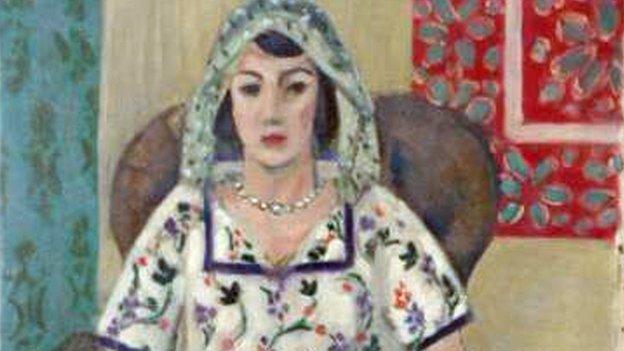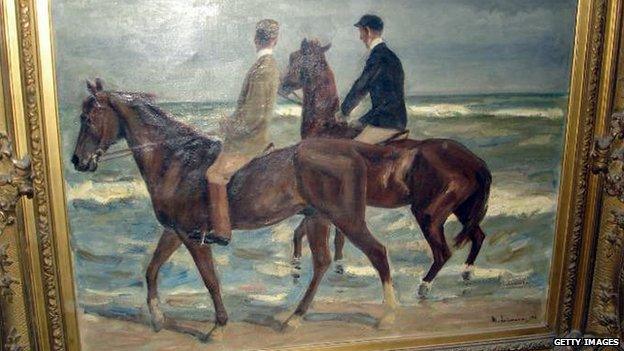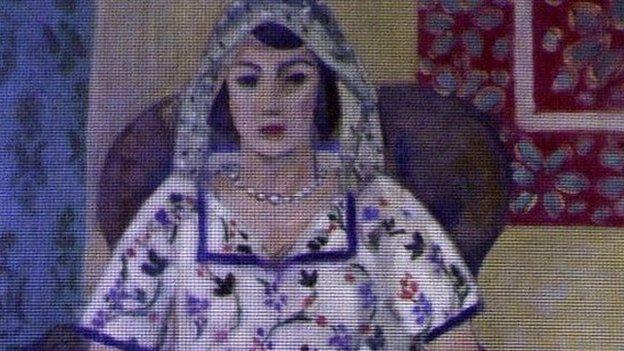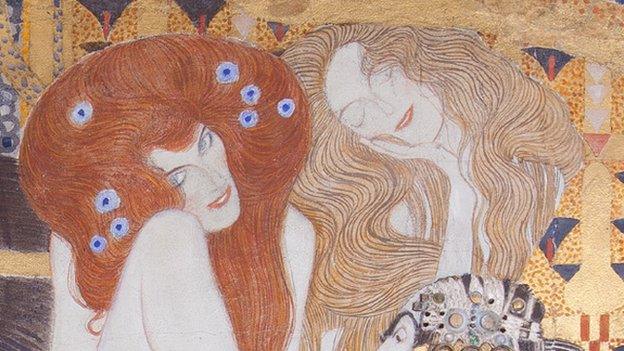Germany in deal to return Gurlitt's looted Matisse
- Published

Matisse's Femme Assise [Seated Woman] was in the Munich apartment of Cornelius Gurlitt
Germany has signed an agreement for the return of a Matisse painting, looted by the Nazis, to the family of its original Jewish owner.
Femme Assise [Seated Woman] was confiscated from the Munich apartment of Cornelius Gurlitt, the son of Adolf Hitler's art dealer.
Experts say the painting, worth an estimated $20m (£13.4m; €18.3m), was stolen from art dealer Paul Rosenberg.
A government task force ruled last year it rightfully belonged to his heirs.
Germany's Culture Minister Monika Gruetters has signed an agreement paving the way for the masterpiece to be handed back.
The deal must now be approved by a court dealing with Gurlitt's estate.
Legal disputes
The Bavarian authorities seized some 1,280 artworks from Gurlitt's Munich flat as part of a tax evasion probe in February 2012.
The find triggered legal disputes surrounding works seized by the Nazis in the 1930s and 40s.
Gurlitt died in May last year aged 81, having named the Bern museum in Switzerland as his "sole heir". He had agreed to help authorities discover which works had been stolen.
The Swiss museum agreed in November to take hundreds of artworks from the collection , externaluntil their rightful owners could be identified.
But German officials said three artworks - including Femme Assise by Henri Matisse - would be returned immediately.
A similar agreement was signed last week for the return of a painting by Max Liebermann, Zwei Reiter am Strand [Two Riders on the Beach].

Artworks going home

Max Liebermann's Two Riders on the Beach is also due to be sent back to the family of the original owners
Henri Matisse's Femme Assise [Seated Woman] was looted from Jewish art dealer Paul Rosenberg and is set to be returned to his descendants, who had been looking for the piece when Gurlitt's hoard was discovered
Max Liebermann's Two Riders on the Beach is said to have been seized from industrialist and avid art collector David Friedmann "as a consequence of the Nazi persecution of Jewish citizens". His great-nephew, David Toren, had taken legal action against Germany for its restitution
Carl Spitzweg's Playing the Piano is to be returned to the heirs of music publisher Henri Hinrichsen, who was murdered at Auschwitz in 1942

Gurlitt's father, Hildebrand Gurlitt, was ordered by Adolf Hitler to deal in works that had been seized from Jewish families, or which the Nazis considered "degenerate" and had been removed from German museums in the 1930s and 1940s.
Matisse's Femme Assise, painted in 1921, was taken from Jewish art dealer Paul Rosenberg in Paris in 1941.
His family had been searching for it until it turned up in Gurlitt's flat.
- Published12 June 2014

- Published24 November 2014

- Published6 March 2015
